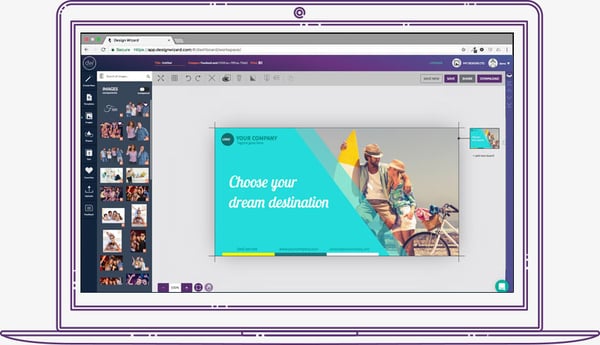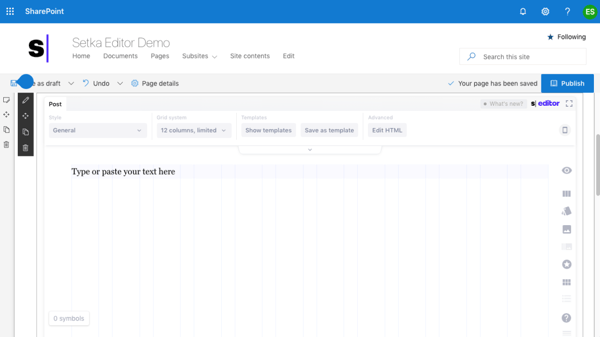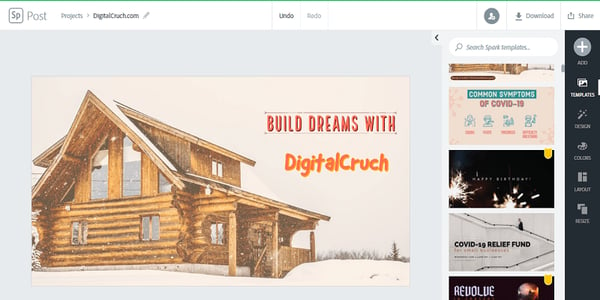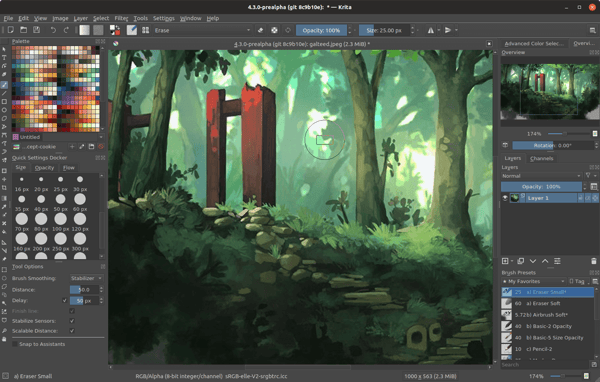When it comes to website success, what you see is what you get. While compelling text, blog, and social media content can help set your brand apart from the competition, the visual appeal of your site is the first thing users see when they follow backlinks or click through on search engine results.
Recent research found that it takes just 2.6 seconds for users’ eyes to focus on a specific area of your website. What’s more, it takes just 0.05 seconds for visitors to form a general first impression of your site — meaning you’ve got just one opportunity to change their minds or reinforce this impression, and it happens in the first three seconds of arrival.
As a result, it’s critical to create webpages that are both aesthetically appealing and contextually relevant. For larger businesses, this often means hiring dedicated graphic designers to develop eye-catching designs and deploy them consistently across web pages, but SMB budgets may not support this type of spending.
What it Takes to Have a Great Design
Advanced graphic design skills require practice, practice, practice. Great designers can take one look at your webpage and see where current visual elements aren’t performing, then create visual content options that capture both your brand position and aesthetic style. But what about website and business owners who can’t afford the skills of a master graphic designer? How can they jumpstart the process of improving their site’s visual appeal?
The first step is taking a step back. Open your own webpage in multiple browsers and see what stands out. What’s the first thing you notice? Is it a specific image — or lack thereof? Is the image clear and concise, and does it drive action? What about the text formatting, color, and font? Here, the goal isn’t to drill down and analyze the nitty-gritty details of website design but instead put yourself in the digital shoes of a site visitor.
It’s also a good idea to ask for feedback from other staff members along with friends and family. While this comes with natural bias — they want your site to succeed, after all — it can help identify persistent or problematic visual elements and suggest an initial course of action.
In this piece, we’ll examine some of the best free graphic design software tools, where this software fits into your website strategy, and how they can help capture user interest from the moment they arrive.
What is the Best Free Graphic Design Software?
If your research turns up a problem — your images aren’t compelling, your text is hard to read and your color scheme hurts the eyes — you need a simple solution.
Free graphic design software offers the ability to customize the look and feel of your site without breaking the bank. But with a host of options on the market, which is the best fit for your business?
Two broad factors impact this outcome: Your current graphical ability and your potential use case. For example, if you have no experience with graphic tools of any kind, look for a solution that’s simple, streamlined, and does most of the work behind-the-scenes. If you have a graphic design background or natural inclination, tools with more robust customization and control may be a better fit.
If you’re planning to revamp your entire site with new colors, images, logos, and menus, meanwhile, you’ll need an in-depth solution that provides this level of control. If you’re starting small with minor changes to your color scheme or image quality, this kind of granular adjustment isn’t necessary.
So which software tool is the best fit for your business? Here’s a look at five free graphic design tools and some pros and cons for each.
The Best Free Graphic Design Software for Beginners and Mac Owners
The Best Free Graphic Design Software for Beginners
1. DesignWizard

DesignWizard ranks among the best free graphic design software for beginners. The tool offers a large database of images along with a host of free templates (over 10,000) plus a simple, easy-to-use interface. You can also quickly create custom templates, but where DesignWizard excels is as a front-line, free graphic design tool for beginners.
Despite an easy-to-use interface and no upfront costs, it’s worth noting that most of the more powerful options in DesignWizard are only available in its for-pay version.
2. Setka Editor

Setka bills itself as “everything you need to create content that converts”. This graphic design software is primarily focused on delivering enhanced content branding across your website, ad campaigns and social media posts — and works from within your current CMS or in the cloud.
The caveat? Although the Setka Editor is free to try for two weeks, companies will need to select a plan — Starter, Pro, or Enterprise — to unlock the full feature set and keep using Setka.
3. Canva
Whether you're looking to create an ebook, infographic, business card, or email header, Canva has a template to simplify your process. The free web design tool, developed by non-designers, offers professional, easy-to-customize templates for just about any design need you can think of.
The drawback? You might need to invest in the paid version or try one of the more advanced free graphic design softwares as you skill up. While Canva's free version is great for new designers working with templates, you can access more complex tools and features -- such as team sharing -- in the paid version.
4. Adobe Spark

Adobe Spark is a free alternative to the company’s popular, for-pay Adobe Illustrator. While it’s not nearly as full-featured it does support integration with other Adobe products, is easy to use and comes with a host of free templates. If you’re looking to quickly create posters or videos for ad campaigns, Spark is a great choice.
The potential drawback? A limited feature set makes this a great starting point for beginners but less useful for more in-depth projects or experienced designers. Spark is available for both web and mobile, however, meaning you design anywhere, anytime.
Best Free Graphic Design Software for Mac
5. Krita
Krita is a free, open-source painting program made by artists, for artists. Ongoing development of this tool depends on donations and is driven by the needs of the designer community at large. It’s no surprise, then, that Krita includes a customizable user interface, feature-rich toolset, and a comprehensive resource manager.
For businesses looking to boost their graphic design impact, Krita is a great tool — if they have the help of an experienced designer. For companies in need of simple, streamlined solutions, meanwhile, other software on this list offers a better fit for beginners.
6. Gravit
Gravit is a vector design application created by the makers of Corel Draw. With a host of tools for creating vector art and a self-adjusting interface, Gravit earns its place among the best free graphic design software for Mac and Windows — the tool is also available for ChromeOS and Linux.

Worth noting? When you sign up for a free trial of Gravit you automatically get access to “Pro” features including the ability to work offline and see version history. However, you lose these features when your trial is up unless you’re willing to pay for a subscription.
Creating a Great First Impression
The first thing users see when they land on your website significantly impacts their perception of your brand — and their likelihood to become paying customers. The right free graphic design software can help ensure your site delivers visual value from first impressions to eventual purchases and streamlines the process of ongoing aesthetic adjustment.
from Marketing https://ift.tt/3pMWWYz
via IFTTT

Comments
Post a Comment